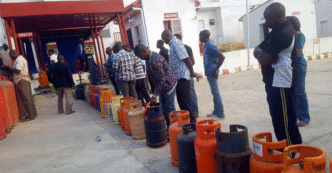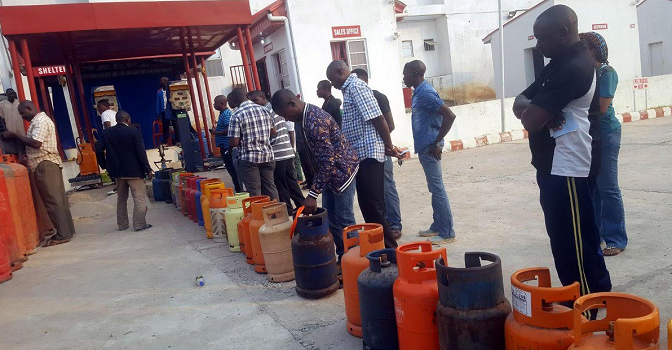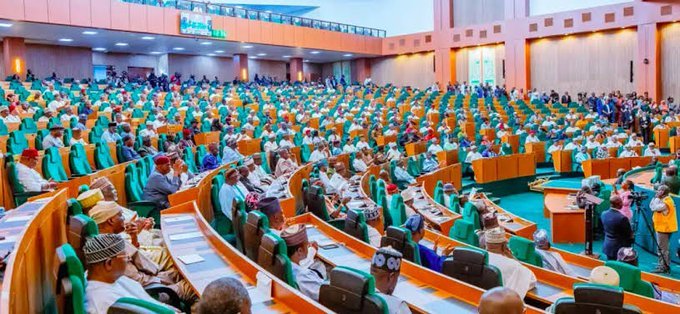The Federal Government has reaffirmed its unwavering commitment to ensuring the success of the 650,000-barrel-per-day Dangote Refinery, describing it as a project of “national importance” that must be supported at all costs.
Speaking on Monday, senior government officials underscored that the multi-billion-dollar refinery—Africa’s largest single-train refining facility—remains central to Nigeria’s quest for energy independence, economic stability, and job creation.
The declaration marks one of the strongest endorsements yet from the federal authorities since the refinery began partial operations earlier this year, processing Nigerian crude and producing diesel, aviation fuel, and other petroleum products for both domestic use and export.
A Turning Point for Nigeria’s Energy Sector
The Dangote Refinery, located in the Lekki Free Trade Zone of Lagos State, represents one of the most ambitious industrial projects in Africa’s history. Built by the Dangote Group under the leadership of billionaire industrialist Aliko Dangote, the facility is designed to refine up to 650,000 barrels of crude oil per day—enough to meet all of Nigeria’s fuel consumption needs and still have excess capacity for export.
Government officials say that the refinery’s success could save Nigeria billions of dollars annually in fuel imports and foreign exchange losses, while also creating a more stable domestic supply of petroleum products.
“This refinery is a game-changer for Nigeria. It must succeed. It must work—not only for Dangote, but for the future of our economy,” a senior government representative said.
The statement came amid renewed talks between the federal government, the Nigerian National Petroleum Company Limited (NNPC), and Dangote Group over crude oil supply, pricing, and logistics as the refinery ramps up operations.
Government’s Strategic Commitment
According to sources in the Ministry of Petroleum Resources, the federal government has made clear that the Dangote Refinery is not just a private enterprise but a national strategic asset.
Officials noted that, while the government holds no controlling stake, it has a vested interest through the NNPC’s 20% equity investment in the refinery. This, they said, makes it imperative for the federal government to provide a conducive policy environment, security, and crude supply stability to ensure uninterrupted production.
“The refinery has the capacity to transform Nigeria from an importer to an exporter of petroleum products. It will stabilize our foreign reserves and improve the balance of trade,” the official added.
The federal government has also pledged to continue working with Dangote Industries Limited to resolve lingering technical and regulatory challenges, particularly in relation to crude oil allocation, pricing mechanisms, and product offtake arrangements.
From Vision to Reality
The Dangote Refinery, first conceptualized in 2013, was completed after years of extensive construction, financing, and logistical challenges. It cost an estimated $20 billion and involved thousands of local and foreign engineers, technicians, and contractors.
The refinery is designed to process a wide range of African and Middle Eastern crude oils and produce a full range of petroleum products including:
- Premium Motor Spirit (PMS)
- Automotive Gas Oil (diesel)
- Jet fuel (aviation kerosene)
- Liquefied petroleum gas (LPG)
- Base oils and petrochemical feedstock
Its integrated design also includes a 435-megawatt power plant, capable of supplying electricity to the facility and the surrounding industrial area, and a deep-sea port to handle crude and product exports.
Why the Refinery Matters
For decades, Nigeria has paradoxically remained one of the world’s largest crude oil producers yet depended heavily on imported refined products due to the collapse and mismanagement of its four state-owned refineries in Port Harcourt, Warri, and Kaduna.
This dependence on fuel imports has drained foreign reserves, widened the trade deficit, and exposed the economy to global oil price fluctuations and supply disruptions.
The Dangote Refinery is expected to reverse this long-standing paradox by providing a reliable local refining capacity that could meet Nigeria’s entire domestic demand of about 450,000 barrels per day of refined products.
Experts say the benefits will extend beyond the energy sector. By reducing import dependence, the refinery will relieve pressure on Nigeria’s foreign exchange market, stabilize fuel prices, and create thousands of direct and indirect jobs.
Economic and Geopolitical Implications
Analysts believe that the success of the Dangote Refinery could reposition Nigeria as a regional refining hub, supplying fuel to neighboring countries across West and Central Africa.
Currently, many of these countries import refined products from Europe, often at high transportation and insurance costs. A fully operational Dangote Refinery could change this dynamic, enhancing Nigeria’s influence within the African energy market.
It also aligns with the African Continental Free Trade Area (AfCFTA) framework, which aims to boost intra-African trade and industrialization.
“Supporting the Dangote Refinery means supporting Nigeria’s leadership in Africa’s energy transition,” an industry analyst noted. “It’s a strategic tool for economic diplomacy.”
Challenges and Controversies
Despite its promise, the refinery has faced several challenges. Chief among them are concerns about access to crude oil, pricing of refined products, and competition with the government-regulated downstream market.
While the facility has already begun selling diesel and aviation fuel locally, talks continue with government agencies over the pricing of Premium Motor Spirit (petrol), which remains regulated to protect consumers.
Dangote Industries has consistently called for fair and transparent policies that allow the refinery to operate profitably without undermining national interests.
Energy analysts warn that without a clear pricing framework and guaranteed crude supply, the refinery’s operations could face delays or inefficiencies.
“There’s no refinery in the world that can survive long-term if it’s forced to sell below cost,” one analyst said. “The government must balance affordability with sustainability.”
FG-Dangote Partnership
In recent months, the Federal Government and the NNPC have been in close discussions with Dangote Group to streamline crude supply and ensure steady production. The NNPC, which owns a minority stake in the refinery, has committed to supplying crude directly from its domestic sources.
Officials say the collaboration between the state and the private sector is essential for Nigeria’s economic resilience, especially as global energy markets undergo rapid transformation.
Minister of State for Petroleum (Oil), Heineken Lokpobiri, recently affirmed that the government views the Dangote Refinery as “a partner in progress, not a competitor,” adding that all necessary support will be extended to ensure its success.
The Road to Fuel Independence
Once fully operational, the Dangote Refinery is expected to end Nigeria’s decades-long reliance on imported petrol. This could save the country an estimated $10 billion annually in foreign exchange and reduce vulnerability to external shocks.
Already, the refinery has exported several batches of diesel and aviation fuel to international buyers, signaling its readiness to compete globally.
In the domestic market, it is expected to supply over 100 million liters of petrol daily once full operations commence—enough to meet national demand and potentially stabilize prices.
The project also holds significant implications for Nigeria’s industrialization drive. With its petrochemical and fertilizer subsidiaries, the Dangote Group aims to create a value chain that supports manufacturing, agriculture, and export diversification.
A National Priority
For the Federal Government, ensuring the refinery’s success goes beyond economic figures—it is a matter of national pride and strategic necessity.
Officials emphasize that a stable and self-sufficient refining sector is crucial for Nigeria’s long-term development, energy security, and fiscal stability.
“The refinery represents hope—hope for jobs, for investment, for energy security. We cannot afford for it to fail,” an official reiterated.
Looking Ahead
As the Dangote Refinery continues to ramp up production, the coming months will be critical in determining how effectively government support translates into sustainable success.
Analysts stress that consistent policies, regulatory transparency, and efficient collaboration between public and private sectors will be vital.
For millions of Nigerians burdened by high fuel prices and economic uncertainty, the refinery’s success could mark the dawn of a new era—one where the country’s vast oil wealth finally translates into tangible prosperity.
In the words of a senior petroleum ministry official:
“Dangote Refinery is not just an industrial project; it is the symbol of Nigeria’s determination to control its own economic destiny. And that is why we must make it work—at all costs.”














